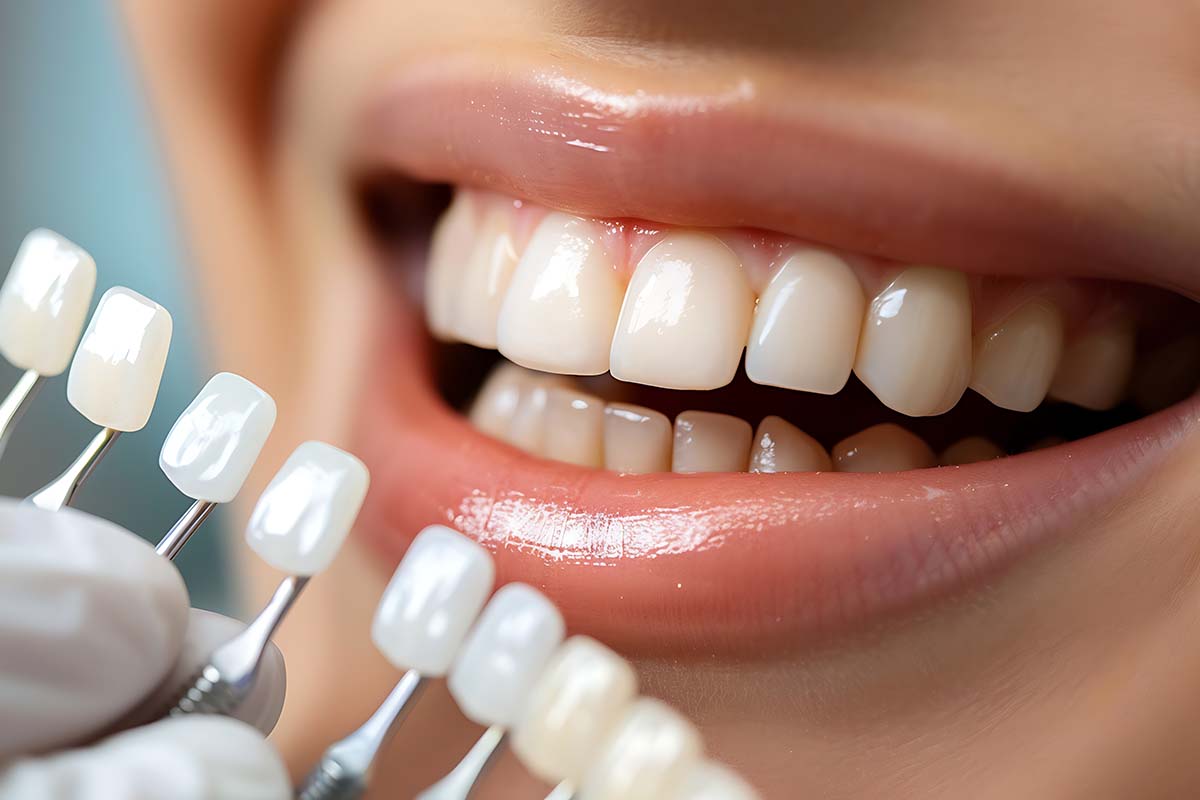The Truth About Getting Dental Veneers in Turkey
Key Points
-
Dental veneers in Turkey offer a personalized, long-lasting solution for common cosmetic dental issues. From discoloration and chips to gaps and minor misalignment, veneers provide a non-invasive, highly aesthetic alternative to crowns or braces.
-
Choosing the right veneer material depends on your budget, oral health, and long-term goals. Porcelain and E-max veneers offer the best durability and natural appearance, while composite veneers provide a more affordable, reversible option.
-
Success with veneers depends on proper care and expert guidance from consultation through maintenance. Long-term results require routine oral hygiene, professional checkups, and avoiding habits that could damage the veneer surface.
Modern dentistry in Turkey may assist with common dental problems, and everyone wants to be able to smile with confidence.
Dental veneers in Turkey are commonly used to correct dental problems such as discoloration, chipping, gaps, and misalignment.
Dental veneers in Turkey from Parmire are tiny, expertly crafted shells that blend in with natural teeth to provide a long-lasting, aesthetically pleasing impression.
This article will discuss veneer types, advantages, procedures, and crucial factors to help you make an informed decision.
What Are Dental Veneers?
✅Definition and Purpose
Dental veneers are very thin tooth-like shells made of porcelain, composite resin, or lithium disilicate.
Teeth are attached to the front surface to improve appeal. Veneers work best to cover the following imperfections that affect a tooth’s shape, color, or symmetry:
- Discoloration: discolorations that are not removed by whitening procedures and are brought on by coffee, tea, or drugs.
- Minor Chips or Cracks: Trauma or normal wear and tear can also result in damage.
- Gaps or Misalignment: An otherwise lovely smile may be diminished by minor gaps or misaligned teeth.
✅How Veneers in Turkey Differ from Other Treatments
Instead of enclosing the tooth as dental crowns do, veneers preserve more of the existing tooth structure.
Additionally, they are distinct from orthodontic treatments like braces, which gradually address issues with alignment.
A quicker cosmetic option for those who want to instantly enhance their appearance is veneers.
Types of Dental Veneers in Turkey
Porcelain Veneers
The most popular veneer material is porcelain because of its strength and organic appearance.
They are composed of medical-grade ceramic, which is transparent and stain-resistant like real tooth enamel.
- Advantages: stain resistance, a natural finish, and an extended shelf life (10-15 years).
- Considerations: Minor enamel removal is required, which usually requires two or more dental appointments.
E-max Veneers
E-max veneers are made of lithium disilicate, a strong and aesthetically pleasing substance.
They are a great substitute for conventional porcelain veneers for customers who wish to avoid damaging their enamel since they are thinner.
- Advantages: high durability, great light transmission for a natural appearance, and compatibility with conservative preparation.
Zirconium Veneers
Due to their extended lifespan and the presence of zirconium oxide, a hypoallergenic material that is beneficial for individuals who are metal-sensitive, zirconium veneers are frequently recommended for patients who suffer bruxism or tooth grinding.
- Advantages: metal-free, fracture-resistant, and appropriate for individuals desiring durable restorations.
Composite Resin Veneers
To make composite veneers, tooth-colored resin is molded onto teeth. Although they are less expensive and more reversible than porcelain, they can not last as long.
- Advantages: reduced cost, one-time treatment, and minimum enamel removal.
- Considerations: Prone to staining and chipping over time; a lifetime of 5-7 years.
Choosing the Right Veneer for You
When selecting the perfect veneer, several factors are considered, including oral health, pricing, and aesthetic objectives.
The finest choice for you could be made if you see a qualified dentist. Composite resin may be used by patients who want to save money, whereas porcelain may be chosen by those who want to live a long life.
The Dental Veneer Procedure in Turkey: Step-by-Step
- Initial Consultation and Assessment. The teeth are thoroughly examined before the procedure. After examining your teeth and talking with you about your objectives, your dentist will take digital scans or X-rays to see if veneers are a suitable fit for you. Dental imprints can be used to create custom veneers as well.
- Tooth Preparation. In a dental lab, temporary veneers can be placed while permanent veneers are being made. A little piece of enamel, often between 0.3 and 0.7 mm, is removed from the front surface of the teeth to prepare them. The veneers will fit nicely and not seem heavy thanks to this. A common method of pain relief is local anesthesia.
- Veneer Bonding. The veneers will be temporarily positioned at the last session to ensure that they are the right color, shape, and fit. Any essential adjustments will be done before adequately adhering them together with a powerful dental glue. The veneers are secured in place when the glue hardens under a curing light.
Recovery and Immediate Aftercare
Post-procedure sensitivity is typical, although it usually goes away in a few days.
Patients should avoid eating anything sticky or hard for 48 hours and follow appropriate dental care to protect their veneers during the first bonding period.
Long-Term Care and Maintenance
✅Daily Oral Hygiene Practices
- Two times a day, clean your teeth with a soft-bristled toothbrush and use non-abrasive toothpaste.
- Gently floss to keep veneers in place.
- Rinse with alcohol-free mouthwash to prevent gum irritation.
✅Lifestyle Adjustments
- Avoid using too many staining agents, such as coffee, red wine, and smoke.
- Keep your fingernails clean and avoid using your teeth to pry anything open.
Regular Dental Checkups
Routine visits allow your dentist to check the quality of your veneers and treat concerns like chipping or loosening glue early on.
Professional cleanings also contribute to their beauty and lifespan.
Potential Risks and Considerations
- Irreversible Enamel Removal. The process cannot be undone once the enamel has been removed. For those individuals who are worried about reversibility, composite bonding is an alternative to veneers.
- Sensitivity and Discomfort. Following the operation, some persons could have transient extremes of temperature sensitivity. When the teeth adjust to the veneers, this normally goes away.
Alternatives to Dental Veneers
- Teeth Whitening. Those with mild discoloration may not require veneers if they undergo professional whitening methods.
- Orthodontic Treatments. If a person is willing to commit to therapy, braces or clear aligners can correct misalignment or gaps and offer a long-term solution.
- Composite Bonding. This low-cost, non-invasive surgery reshapes teeth using resin, but it is less durable than veneers.
Conclusion
Dental veneers may enhance the appearance of your smile and your self-esteem.
With so many alternatives for care, treatments, and choices, clients may be able to make better choices depending on their particular needs.
Veneers in Turkey provide a longer-lasting, customized fix for issues including chipping, cracks, and discoloration.
A qualified dentist in Turkey can offer more detailed advice.





















